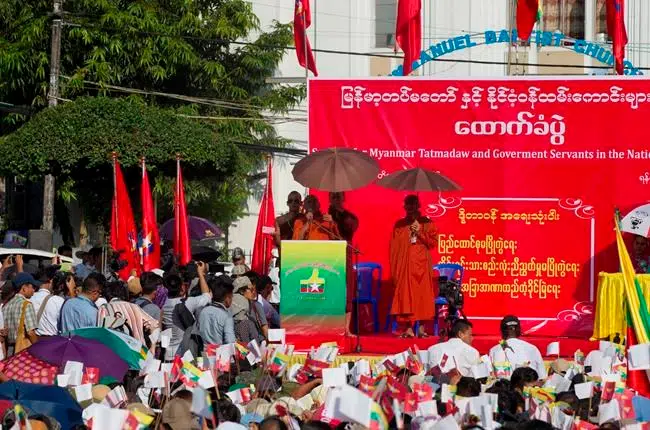
Myanmar army enjoys popularity surge amid Rohingya crackdown
BANGKOK — Activist Nyo Tun spent 10 years as a political prisoner locked away by Myanmar’s military in the notorious Insein prison, where he endured beatings and other cruelty for his efforts to bring democracy.
“The military government was so brutal for many years,” he said of the former junta, which ruled the country for decades until 2012 and then by proxy four more years — and still has a final say on security matters. “All they knew was how to torture anyone who was against them.”
Myanmar, long isolated both by choice and by international sanctions, has undergone a transformation in recent years. Another former political prisoner, Nobel Peace laureate Aung San Suu Kyi, was elected the head of a civilian government, which led to the easing of most sanctions and an influx of foreign investment.
Yet the most striking change may be the majority Buddhist Burman population’s view of its military: An institution once despised has seen its popularity surge alongside a rise in nationalism that has accompanied a crackdown on Rohingya Muslims in Rakhine state in western Myanmar that has left thousands dead and more than 650,000 displaced.
